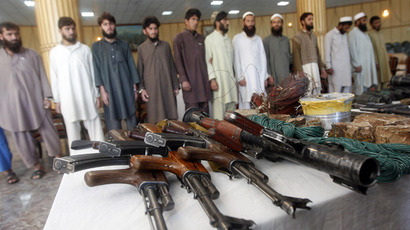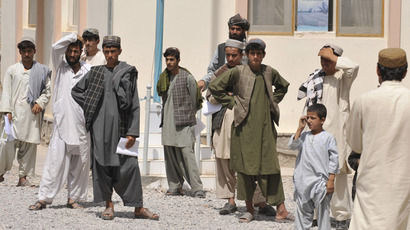ISAF airstrike that killed civilians breached presidential ban - Karzai
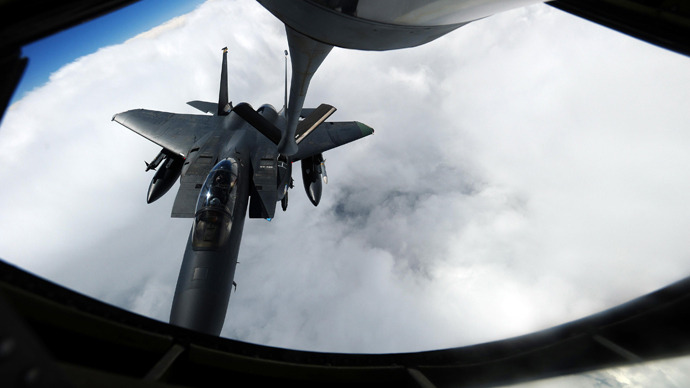
A recent ISAF airstrike that killed 17 Afghan civilians violated an executive order banning air strikes in residential areas, President Hamid Karzai said on Saturday. This strike by coalition forces is a definite violation of human rights, he said.
The Afghan president lashed out at both the ISAF and Taliban while holding a meeting with members of a commission investigating the incident in the Shigal district of Kunar province, a major infiltration route for insurgents based in northwestern Pakistan.
"No Afghan security forces, under any circumstances, can ask for foreigners' planes to carry out operations on our homes and villages," Karzai said at a press conference in February after another deadly airstrike caused civilian casualties in Kunar province.
Karzai likewise condemned the insurgents: “As the reports confirm that armed Taliban were there in the area, we strongly condemn the use of civilians and their homes as shields.”
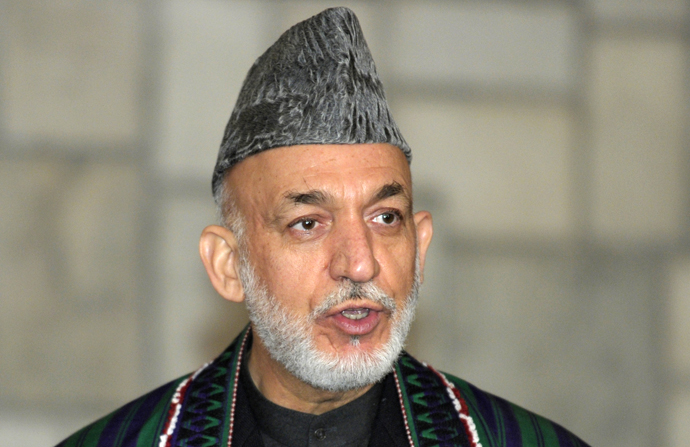
On April 6, an operation to arrest two Taliban commanders – Qari Mohammad Hanif and Ali Khan – went awry after an Afghan intelligence service squad encountered fierce resistance. The ground forces came under heavy fire as they attempted to retreat, and a US civilian adviser accompanying the squad was shot and killed.
The squad requested air support, reportedly to evacuate the body, despite Karzai's earlier injunction against ISAF air support. Airstrikes launched by the US-led coalition the continued “for hours,” witnesses said, including in areas near civilian houses where insurgents were allegedly taking refuge.
Residents' wood and clay houses collapsed under the shockwaves of bomb explosions – the victims likely died buried under the rubble, rather than from bomb fragments.
Kabul launched an investigation into the incident, led by a government delegation and 75 tribal elders from the region. The results of the inquiry saw number of casualties raised from the previously reported 11 to 17: One local man, four women and 12 children.
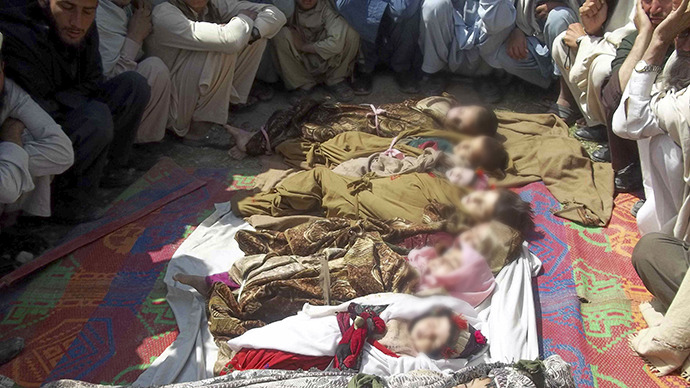
The Afghan president’s ban on airstrikes was issued earlier for the country’s defense and interior ministries, and the National Directorate of Security, the Afghan intelligence agency. "During your operations, do not call for air support from international forces during operations on residential areas,” the directive states.
The squad violated this mandate by requesting air support. However, the ISAF can still carry out airstrikes on its own accord.
“We do not accept the conduct of any air strike on residential areas under any name and for any purpose whatsoever," the Afghan presidential media office said. Karzai has ordered aid be allocated to the families affected by the incident.
Though Afghan troops have become increasingly independent in combat operations against Taliban militants, they still rely on the ISAF’s firepower and battle experience. Once the main ISAF forces are withdrawn in 2014, the Afghan army and law enforcement will have to do deal insurgents without air support.
Atta Mohammad Noor, the Governor of Afghanistan's Balkh province, recently said in an interview with TOLOnews that killing civilians is the biggest mistake the ISAF makes in Afghanistan. Noor, who is expected to become a major candidate in the 2014 presidential election in Afghanistan, stressed that this effectively nullifies efforts to increase security in Afghanistan.













